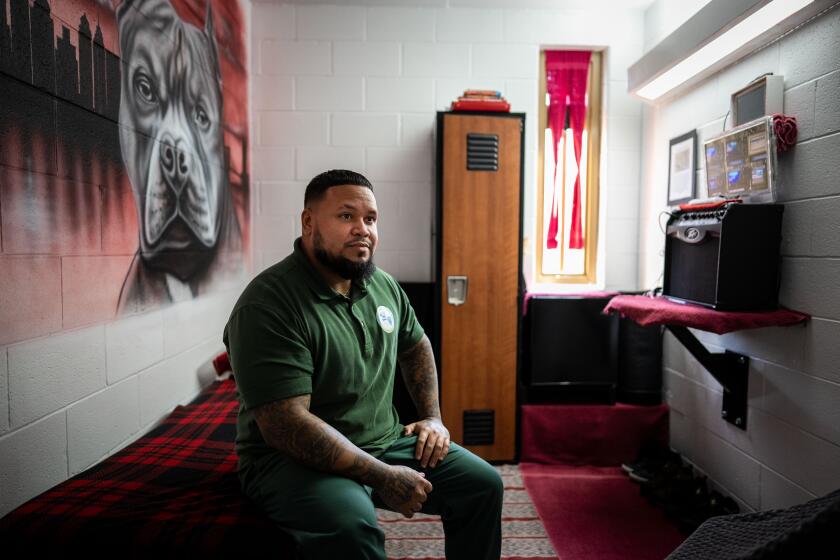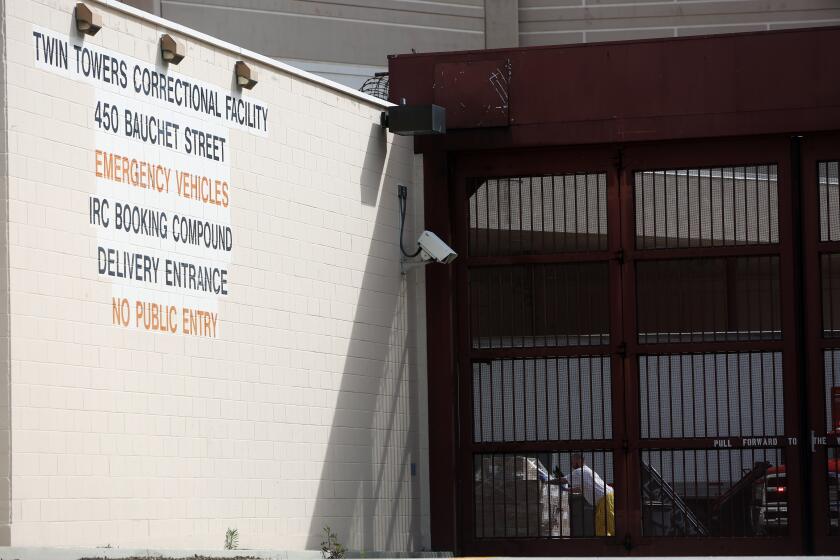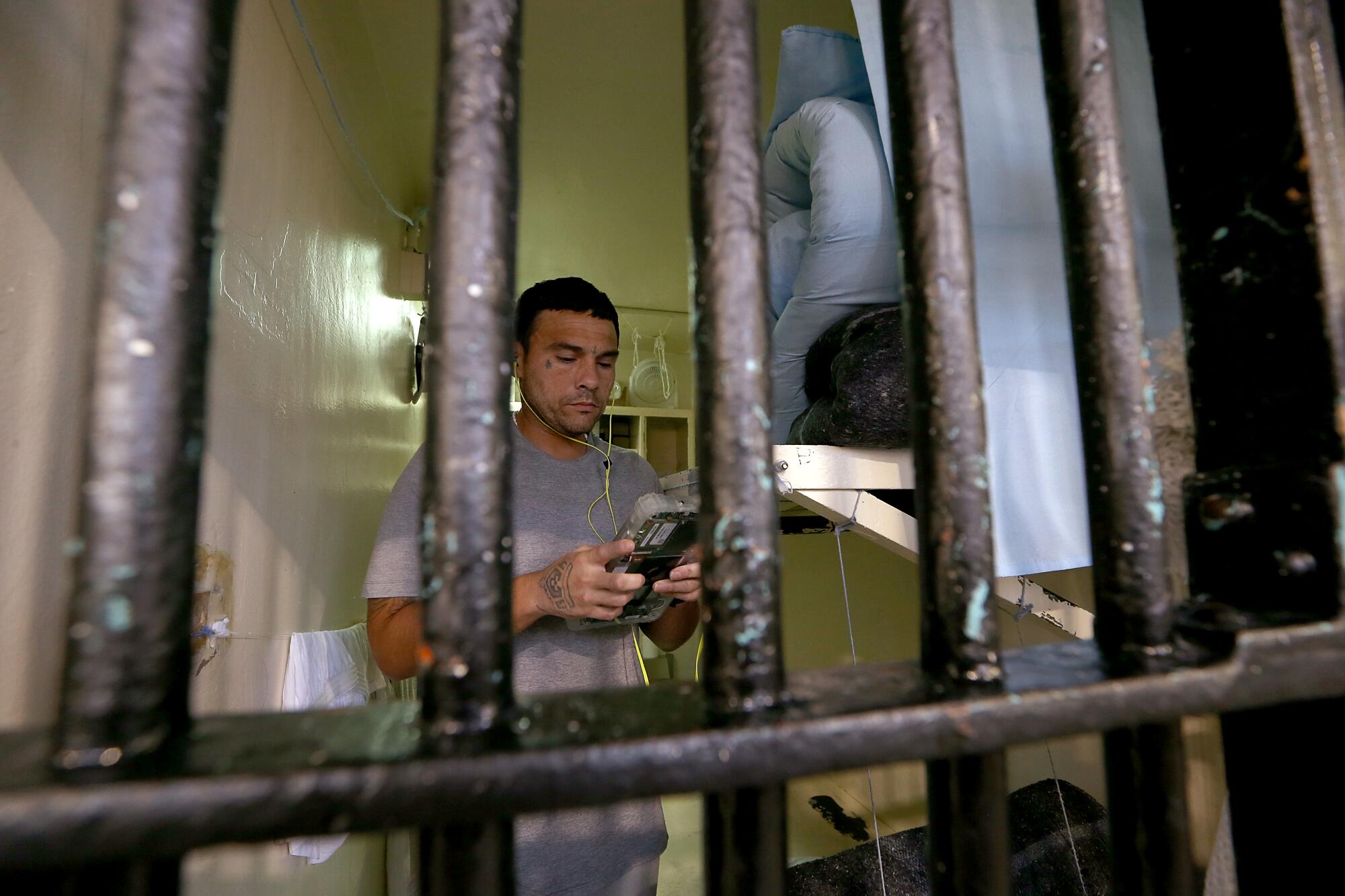
- Share via
Zeara Alvarez, 47, never realized just how much her big brother really cared.
She was a teenager when he was sent to prison for second-degree murder, and the pair spoke only sparingly over three decades.
That wasn’t because he had shut out the family or they had moved on. Communication between the siblings was drastically curtailed by the exorbitant cost of making prison phone calls.
At a time when most consumers enjoy free or low-cost calling, prison phone calls at their peak in California cost more than $6 per 15 minutes via a private telecommunications provider. That allowed only hurried, superficial conversations between the siblings — with one eye always on the clock.
This year California became the second state in the nation, and the largest to date, to mandate free calls in state prisons. Because family members bore the cost of the pricey calls, the new law eliminated a longstanding financial burden that forced many low-income people — particularly those of color — to choose between maintaining contact with incarcerated loved ones and putting food on the table.
Without the constant worry that the meter was running, Alvarez’s relationship with brother Anthony Perez, 51, has blossomed in recent months.
They speak several times a week. Rather than rushed conversations, there’s time for laughter and sharing memories. With their regular updates about everyday life and relaxed chats, a deeper bond has emerged.


“We were actually crying together, and that had not ever happened,” Alvarez told The Times, recalling a recent conversation with her brother. “It was very healing for us. I never knew all that he carried, like the emotional burden of not protecting his younger sister.”
In a telephone interview from Ironwood State Prison in Blythe, Perez said the more frequent contact with his sister was making him a better brother and better person.
By having these conversations, he said, he and others in prison “are able to kind of really rehabilitate our emotional awareness, and really start to have empathy for our family members that are struggling out there on the streets, so that we can create some type of emotion in ourselves other than always be worried about what is happening on the inside.”
Prisoner advocates and state correction officials hope the benefits will go even further by speeding rehabilitation, reducing recidivism and easing the way for reentry into society.
“Incarcerated people who are connected to their families and support systems are more likely to come home and stay home,” said Bianca Tylek, executive director of Worth Rises, a prison reform organization. “That means they are less likely to reengage in criminal activity and more likely to be productive neighbors for all of us. That protects and improves our own public safety.”
Other states including Colorado and Minnesota are following California and Connecticut, which was the first state to implement a free-call program in prisons. This week, the Los Angeles County Board of Supervisors, in the footsteps of San Francisco and San Diego, voted unanimously to give the Sheriff’s Department a Dec. 1 deadline to make phone calls free in the seven county jails.
Since the California law took effect in January, call volume in state prisons surged from 1.4 million minutes per day in December 2022 to more than 3.5 million minutes in June, according to the California Department of Corrections and Rehabilitation.
Under the new law, free calls still must originate from prison and end after 15 minutes, but there are no caps on the number of calls an incarcerated person can make. Calling can be restricted to certain hours by individual facilities.
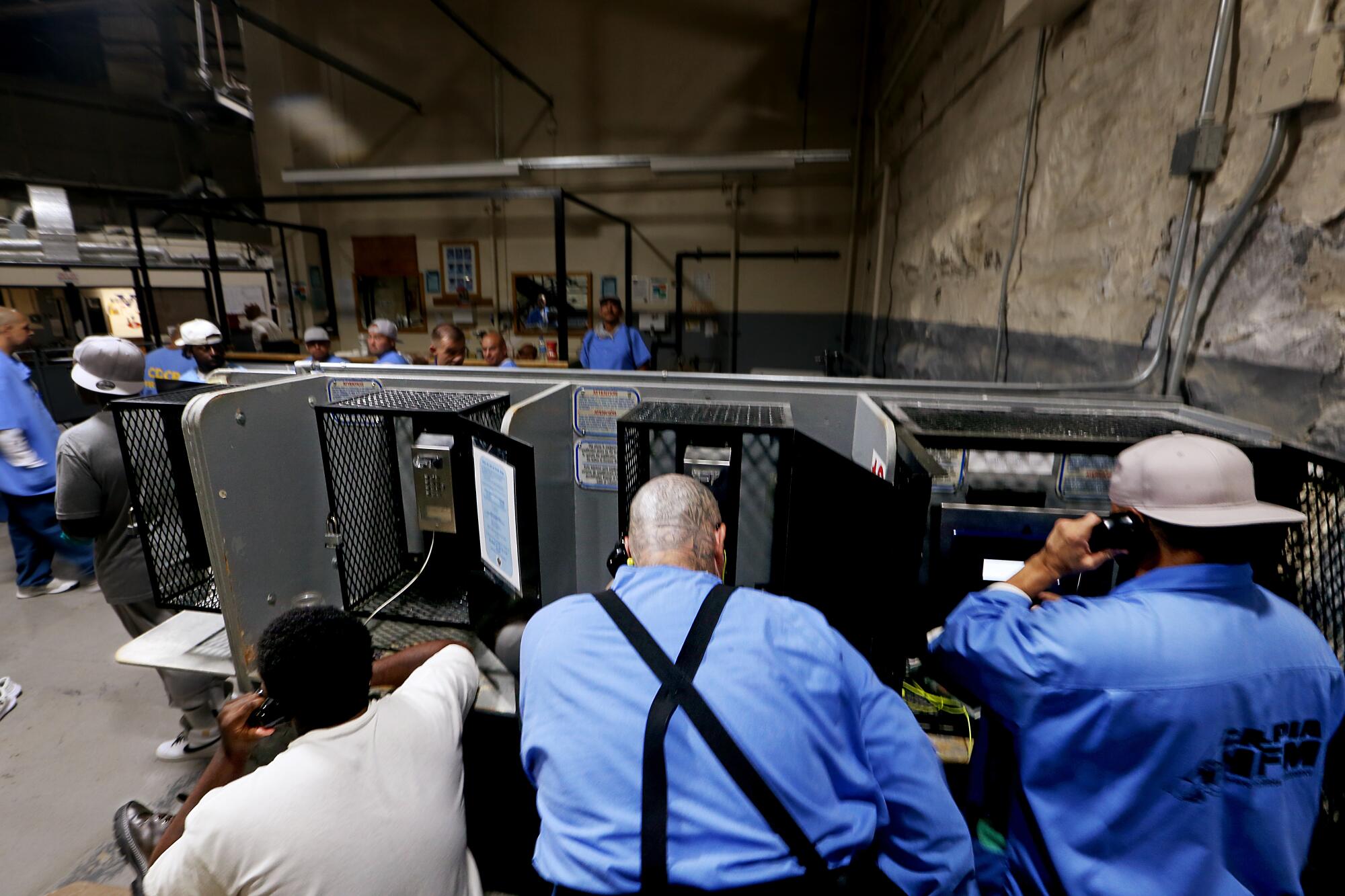
In a statement, the state corrections department said it was optimistic that the increased family contact would help incarcerated people “build and maintain relationships that are critical to achieving their rehabilitative goals.”
Before the law, the state provided each prisoner with two free 15-minute calls every two weeks, costing taxpayers about $214,000 in December. In June, the overall prison phone bill increased more than tenfold, to nearly $2.4 million.
Oscar Bonilla, a formerly incarcerated person released in 2020, recalls the toll of long periods of not having phone calls. Though he understood his family could not afford the fee, he nevertheless felt forgotten and resentful.
Having free phone calls during his incarceration would have strengthened the relationship he had with his family, he said.
It would have “helped my own mental health and my own emotional state of being while I was in there,” he added. “It would have really had me feeling a little happier instead of being in a depressed state of mind. Having that bridge to your family is huge.”
Separation wore heavily on family members, too.
Ruth Mancilla, 43, of Duarte, has two brothers in prison. She said the family’s phone bill sometimes hit $900 in the early 2000s. “That was like a full rent back then,” she said.
She recalled the anguish she felt when one of her brothers would call her cellphone, and she had to watch the screen until it stopped ringing because she could not afford to answer it.
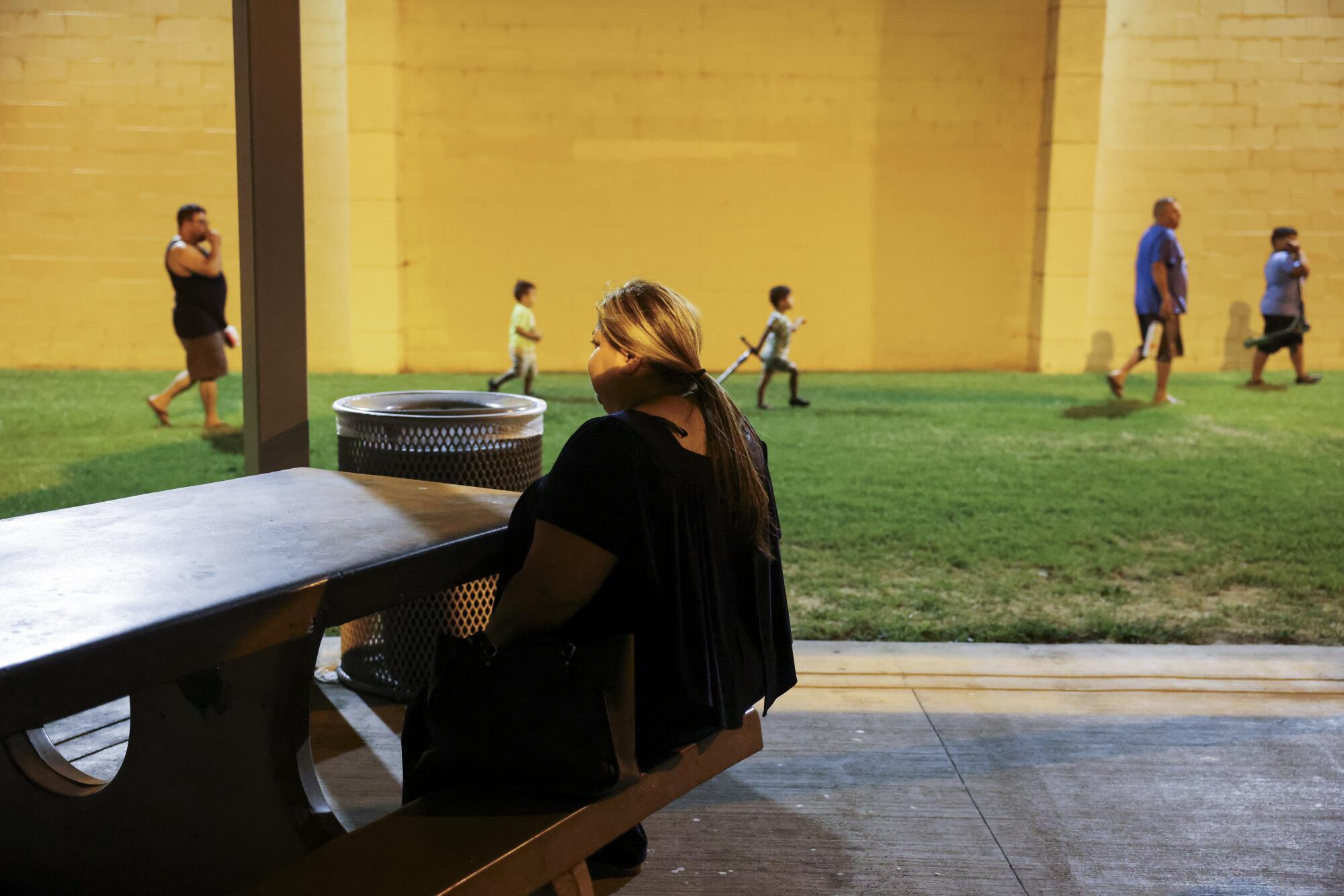
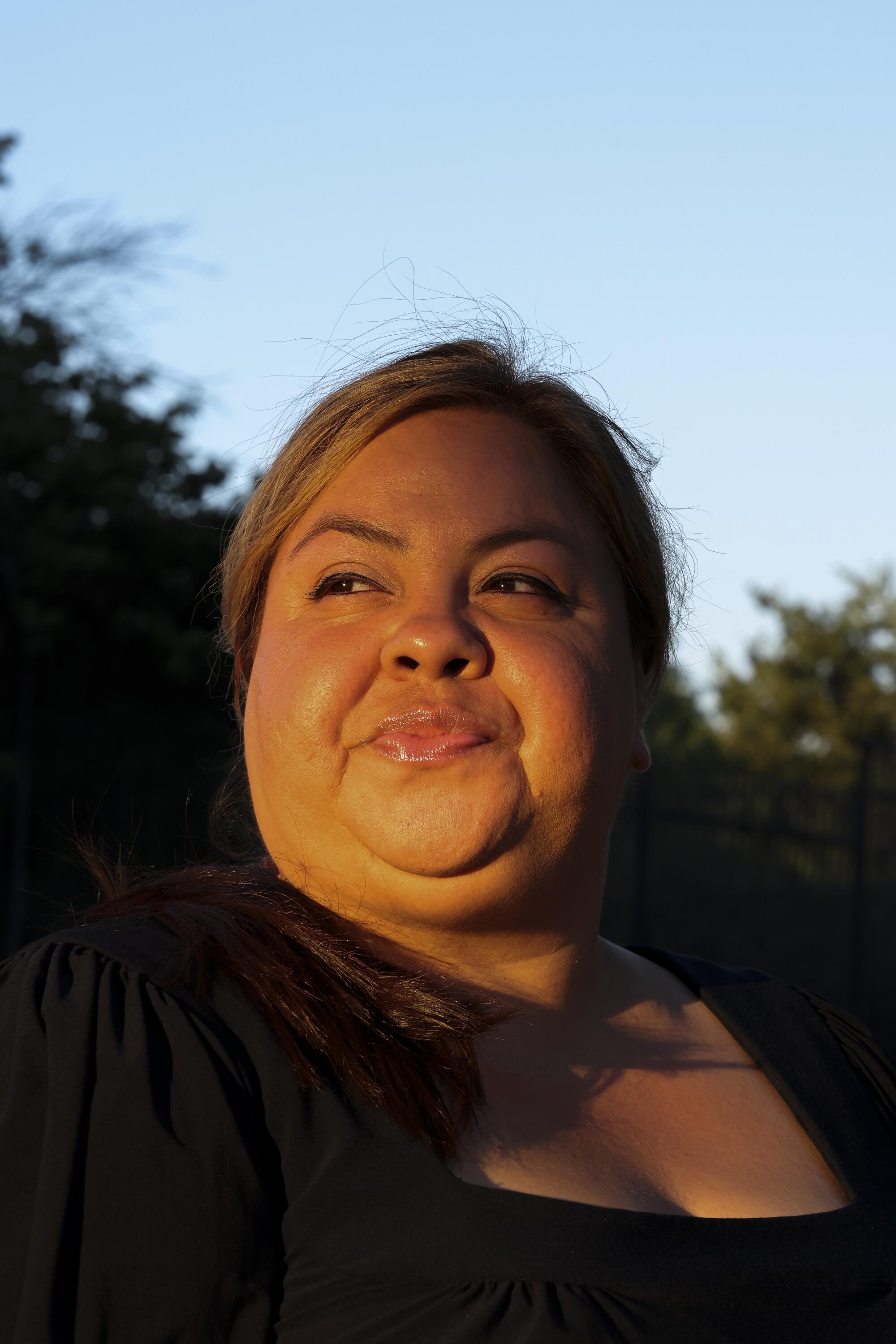
Even though calls are free now, she said that it is hard to break the old habit of second-guessing whether she should pick up.
“It is kind of a little traumatic,” she said. “I still have to stop and pause at times, because it is one of those ‘too good to be true’ type of things.”
Gabriel Bonilla, 47, who was convicted of murder in 2000, said the free calls had enabled him to reunite with his three sons, and to share his efforts to rehabilitate himself in prison, including his completion of a degree in May.
“Previously we had no communication and I was only judged [by] the worst day of my life,” Bonilla, no relation to Oscar, said in a phone call from Folsom State Prison. “I feel a lot better as a father, as a grandfather and as a husband because I am able to communicate with them. I am able to tell them my accomplishments [in prison] and everything that I have done to improve myself so that I’m not looked at for what I did to get myself in here.”
Free prison phone calls are among a series of recent reforms to overhaul the state’s prison system.
In March, Gov. Gavin Newsom announced that San Quentin State Prison — California’s oldest — would be transformed into a “Scandinavian model,” with a focus on education and job training to ease reentry into society and reduce rates of reoffending. The reforms seek to “completely reimagine what prison means,” Newsom said.
Gov. Gavin Newsom this week will announce plans to remake San Quentin, one of the state’s most storied prisons, using a Scandinavian prison model that emphasizes rehabilitation.
In June, the state closed all of its juvenile prisons in favor of detaining youth at county jails. The state is closing some prisons, and the corrections department has begun offering free transportation for families to visit incarcerated relatives.
During the pandemic, California prisons rolled out tablets that give incarcerated people limited digital access, including to video calls, text messages and music streaming.
However, those services are not free, and families have to pay for them if incarcerated relatives are among those who have received the tablets. Video calls cost 20 cents per minute and text messages cost 5 cents per message, according to rates published by the state corrections agency.
Even before the new law, the cost of prison calls was drastically reduced after the Federal Communications Commission cracked down on hidden service fees and imposed rate caps on the prison telecom industry. A new law signed by President Biden and taking effect in 2024 will give the commission even greater powers to regulate the industry.
In some states, prison calls were costing as much as $14 a minute. A 15-minute phone call to a number within California peaked at $6.20 in 2007, and at $17.30 for out-of-state calls, according to the department.
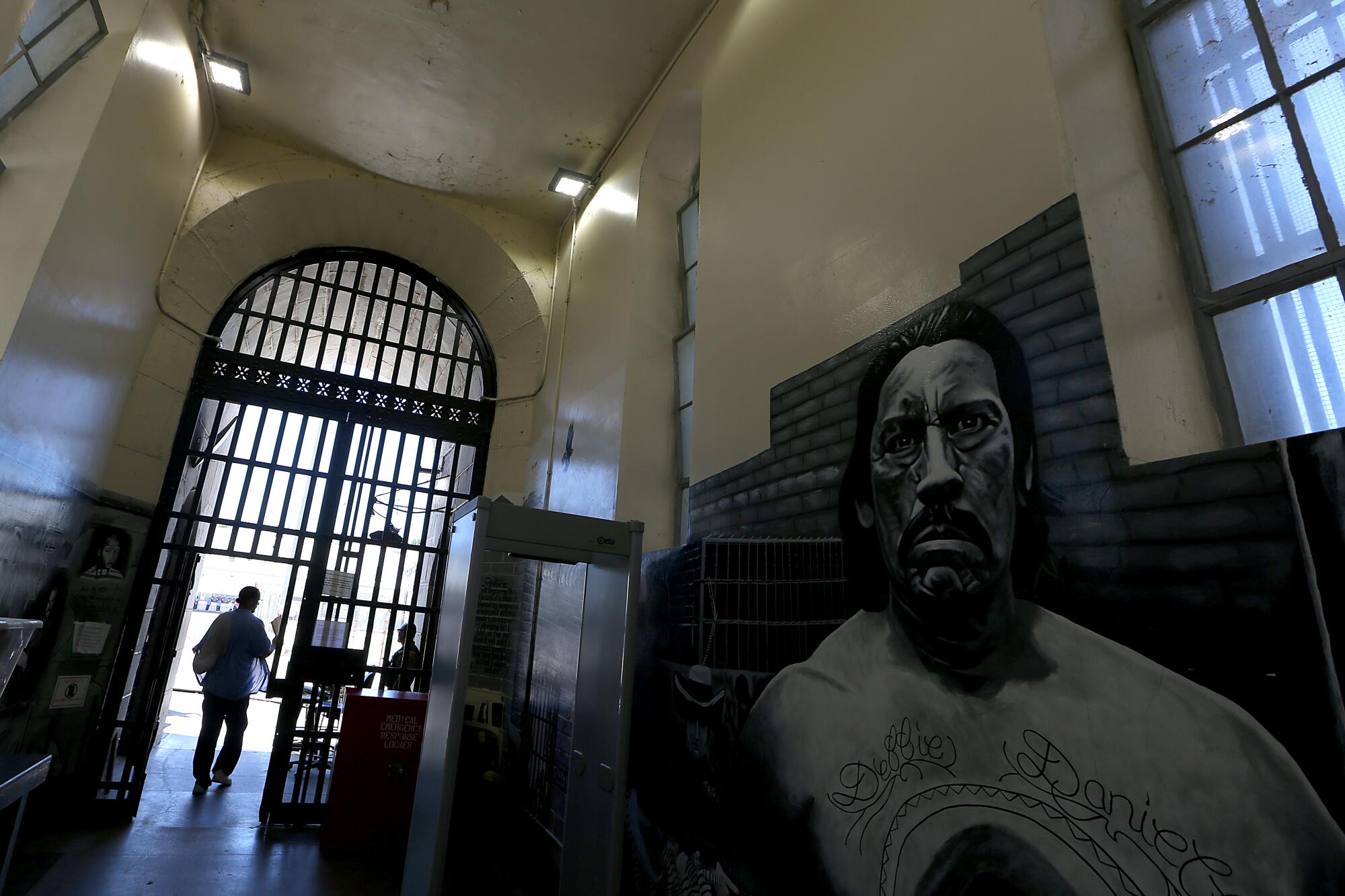
In 2021, Global Tel Link, the private company handling California’s state prison calls, agreed to a $67-million settlement to refund and credit customers whose funds it had taken as profit when the customers didn’t use the funds within a 90-day period. The company is now known as ViaPath.
“As a provider of these services, ViaPath understands the importance of communication services and is focused on providing quality service and support,” ViaPath said in a statement. “The company was pleased to resolve the legacy litigation ... and is complying with the settlement agreement.”
Advocates and relatives interviewed by The Times said although they are happy calls are now free, there is still a need to improve the quality of the service, as calls drop frequently and users are sometimes unable to hear one another.
The next legislative fight, activists say, is for video calls, text messages and calls from California’s patchwork of county jails to also become free. Those provisions were dropped from the previous bill as it made its way through California’s Legislature.
The lawsuits accuse California jails of marking up commissary and calls so much they’ve created an “unlawful tax.”
Tylek hopes California’s example encourages other states to pursue similar policy shifts in their correctional systems.
“I think the legislation in California helps demonstrate to other states across the country that this is doable, that this is feasible and that it can help change lives,” she said.
More to Read
Get the L.A. Times Politics newsletter
Deeply reported insights into legislation, politics and policy from Sacramento, Washington and beyond. In your inbox three times per week.
You may occasionally receive promotional content from the Los Angeles Times.
